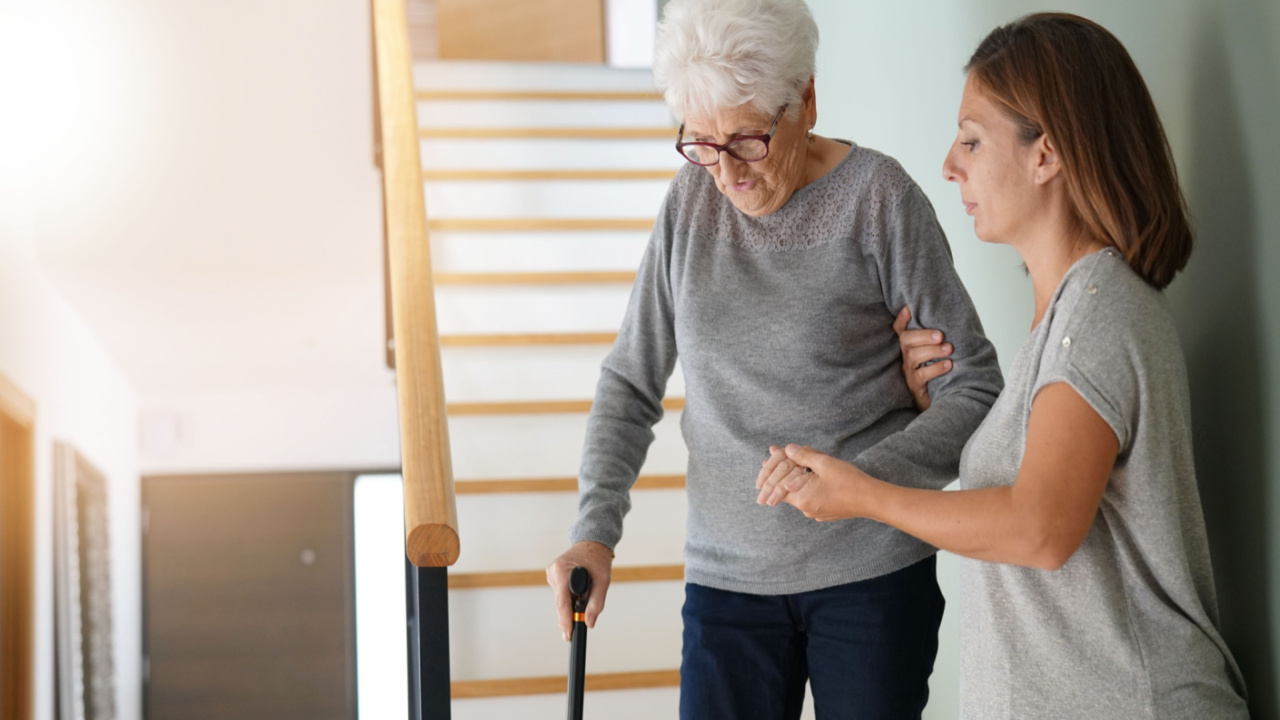Recently you’ve noticed your aging loved one seems to need more help with everyday tasks, like cooking, dressing, or bathing. Or, maybe they’re having more trouble getting around, and they’ve even had a couple falls.
If your aging parent lives alone and you’re worried about their safety, you may be considering whether it’s time to move them to an assisted living facility. However, you might also be wondering if moving is the right choice for your loved one.
Most seniors value living at home, with 88% of people ages 50 to 80 saying they believe aging in place is important according to the University of Michigan National Poll on Healthy Aging published in 2022.
If your loved one doesn’t want to leave their home, there are alternatives to assisted living that can help seniors age in place safely.
Home safety equipment
While many seniors prefer to age in place, there may be safety hazards in your loved one’s home that could be detrimental to their health. For example, stairways, showers, and area rugs can pose fall risks for seniors with limited mobility.
The National Institute on Aging (NIA) has found that 60% of falls occur at home, so ensuring proper accessibility is important.
A majority of people 50+ considered the need for some home modifications in order to safely age in place, according to the same University of Michigan poll. Certain products, such as grab bars, bed railings, and ramps, can help.
Medical alert systems
A medical alert system allows seniors to summon help at any time in case of an emergency. Depending on the device, your loved one can press a button to connect with an operator and/or notify family, friends, or a neighbor.
These devices may help give caregivers peace of mind and keep seniors safe in their homes. According to the National Council on Aging, medical alert system features vary depending on the device. Options include monitored and unmonitored devices, which may connect seniors with on-call agents or directly dial 911, wearables, at-home sensors, and more.
If a senior isn’t able to get up or call out for assistance during an emergency, a medical alert system is a helpful option.
Mobility safety
Seniors with limited mobility may need assistance with walking, standing, and other activities. People 65 and older are more prone to falls, with over 1 in 4 seniors experiencing a fall each year, according to the Centers for Disease Control and Prevention (CDC). Once a fall happens, the chances of a senior falling again double. Adding aids around your home can help prevent falls. For example:
- Install grab bars in the bathrooms.
- Add hand rails on staircases.
- Place canes or walkers around the house.
Wet surfaces and loose area rugs also pose a fall risk. The NIA recommends removing throw rugs and adding no-slip strips or non-skid mats to slippery surfaces like tile or hardwood floors to help prevent falls.
In-home care
If you’re caring for your loved one, you may need extra help to keep up with their needs and daily chores. In-home care is an alternative to assisted living that allows seniors to age in place while offering support to family caregivers.
A professional in-home caregiver can help with everyday activities, offer companionship, assist with transportation, and more. They add an extra pair of hands where they’re needed by assisting with things like:
- Cooking
- Cleaning
- Running errands
- Assisting with appointments
- Providing personal care
Adult Day Care
While caring for your loved one can be rewarding, it may become difficult to balance their needs with your work and family responsibilities. Caregiving often takes a toll on a caregiver’s physical and mental health, too. Approximately 23% of caregivers find it hard to prioritize their own health. This is especially true for caregivers who live with their loved one and assist with daily activities, such as bathing, dressing, and feeding.
Adult day care is a temporary alternative to assisted living that gives seniors a safe place to go while caregivers take a break for a few hours or a whole day. Adult day care benefits caregivers and seniors alike. Seniors can find new hobbies while interacting with others, staving off loneliness. Social isolation has been linked to an increased risk for many health issues, according to the CDC. Socializing for a few hours at an adult day care center may benefit your loved one’s mental and physical health.
The right type of adult day care depends on your loved one’s unique needs. Some adult day centers specialize in memory care and provide health care services. However, most adult day care programs typically include services like transportation, meals, and activities.
Respite care
Respite care provides short-term relief for family caregivers. There are different types of respite care available, such as senior centers, in-home care, and temporary stays at senior living communities.
This alternative to permanently moving to an assisted living community ensures a senior’s safety while giving their caregiver an opportunity to rest. If you were to experience an emergency, who would care for your loved one? Building respite into their care plan makes it easier to arrange back-up care on short notice.
Respite care can also help prevent and ease caregiver burnout.
How to choose the right alternative to assisted living for your loved one
Every senior’s needs are different and ever-changing. As you consider alternatives to assisted living, it’s important to determine what options best suit your loved one’s needs and yours. However, it can be difficult to know where to start and how to narrow down the options. Begin by:
- Speaking with your loved one about what their preferences and needs are.
- Assessing the level of care needed and how long your loved one may need it.
- Researching local care options.
- Considering their budget and care costs.
- Understanding how to choose and evaluate care providers.
